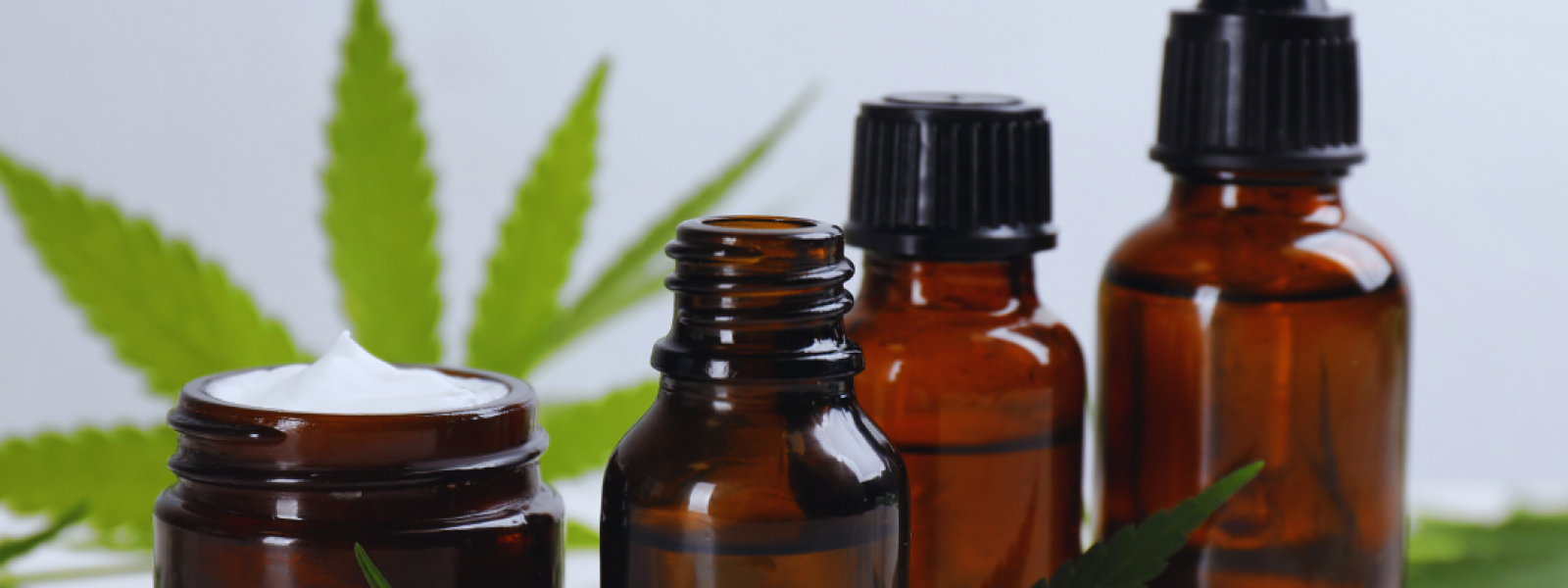The growing interest in cannabidiol (CBD) highlights its potential role in enhancing wellness and overall quality of life. CBD may offer various health benefits, such as alleviating anxiety, reducing inflammation, and improving sleep quality, making it an appealing natural remedy for many. As individuals seek alternatives to traditional pharmaceuticals, understanding the link between CBD and wellness becomes increasingly relevant.
Research surrounding CBD is expanding, yet it remains critical for consumers to approach its use with care. They should consider factors like product quality, dosage, and individual health needs. This attention to detail ensures that the pursuit of wellness through CBD is both informed and effective.
As CBD continues to gain traction, exploring its diverse applications can help individuals make educated choices about their health. With a focus on evidence-based information, the conversation around CBD and wellness promises to be insightful for those looking to enhance their well-being naturally.
Exploring CBD and Its Role in Wellness
Cannabidiol (CBD) has gained attention as a potential contributor to wellness through its interactions with the body’s endocannabinoid system. Understanding these interactions and distinguishing CBD from other cannabinoids is essential for comprehending its role in health.
Understanding Cannabidiol and the Endocannabinoid System
CBD is a non-psychoactive compound derived from the hemp plant, distinguished for its therapeutic properties. It interacts with the body’s endocannabinoid system (ECS), which regulates various physiological processes, including mood, pain perception, and immune responses.
The ECS comprises receptors, endocannabinoids, and enzymes. CBD primarily influences the CB1 and CB2 receptors, promoting balance in the body’s functioning. This can lead to potential benefits such as reduced anxiety, improved sleep, and enhanced overall well-being.
Research remains ongoing into the depth of these interactions, with studies suggesting that CBD can help alleviate symptoms associated with chronic illnesses. Its non-psychoactive nature makes it an appealing option for those seeking to improve their health without the high associated with THC.
The Distinctions between CBD, THC, and Other Cannabinoids
CBD and THC are the most well-known cannabinoids, each with unique properties. While CBD is non-psychoactive and responsible for potential health benefits, THC is psychoactive and can produce euphoric effects. This difference is crucial for users seeking therapeutic effects without intoxication.
Other cannabinoids, like CBG and CBN, also contribute to the therapeutic potential of cannabis. Each cannabinoid interacts differently with the ECS, leading to distinct effects. Consumers must be informed about these differences, as the intended use may dictate which cannabinoid or cannabis product to choose.
Incorporating CBD into wellness routines can be beneficial for managing health conditions while avoiding psychoactive side effects. This distinction is vital for fostering informed decisions regarding the use of cannabis-derived products in wellness practices.
The Health Impacts of CBD on Mental and Physical Wellbeing
CBD has garnered attention for its potential benefits on mental health and physical wellness. Research indicates that it may aid in managing symptoms associated with anxiety, depression, stress, and physical pain, as well as improving sleep quality.
CBD’s Effects on Anxiety, Depression, and Stress
Studies suggest that CBD may help alleviate symptoms of anxiety and depression. It appears to interact with serotonin receptors in the brain, which play a crucial role in mood regulation.
Individuals experiencing social anxiety, generalised anxiety disorder, or post-traumatic stress disorder may find that CBD products provide a sense of calm and relaxation.
Patients report a reduction in stress levels, which may contribute to improved overall mental health. While results can vary, many users note positive changes in their emotional well-being with consistent use.
Pain Relief and CBD’s Anti-inflammatory Properties
CBD is often explored for its potential to relieve chronic pain and inflammation. Its anti-inflammatory properties may help conditions such as arthritis, providing a natural alternative to traditional pain relief medications.
By interacting with the endocannabinoid system, CBD may reduce pain signals and promote a general sense of comfort. This has led to interest in its application for those suffering from chronic pain conditions.
Many people using CBD products report a decrease in pain intensity and an increase in their ability to perform daily activities. Incorporating CBD into a wellness regimen may enhance physical comfort and mobility for those in need.
CBD’s Contribution to Sleep Quality and Insomnia Management
For those struggling with sleep issues, CBD might benefit sleep quality and assist in insomnia management. Research shows that CBD may help regulate sleep patterns by addressing underlying problems such as anxiety or pain.
Users often report improvements in both the duration and quality of their sleep after integrating CBD products into their nightly routines. Enhanced relaxation before bedtime may promote a more restful sleep environment.
As fatigue becomes a significant concern for many, the potential of CBD to improve overall sleep health can be an essential component of a wellness strategy. Some individuals find that consistent use of CBD helps them wake refreshed and ready for the day.
Incorporating CBD into Your Wellness Routine
Integrating CBD into a wellness routine requires understanding the various forms available and ensuring quality and safety. By making informed choices, individuals can effectively utilise CBD products to enhance their well-being.
Different Forms of CBD: Oils, Capsules, Edibles, and Topicals
CBD comes in various forms, each offering unique benefits. Oils are the most popular, allowing for precise dosing and quick absorption. Users can take them sublingually or add them to foods and drinks.
Capsules provide a convenient option for those who prefer a familiar delivery method. They offer a consistent dosage but may take longer to take effect compared to oils.
Edibles, like gummies, are an enjoyable way to consume CBD. They come in various flavours and doses, making them appealing to newcomers.
Topicals, such as creams and balms, target specific areas for relief. They do not enter the bloodstream but can alleviate discomfort in localised regions.
Reputable Brands and the Importance of Quality and Transparency
Choosing reputable brands is essential when selecting CBD products. High-quality brands prioritise lab testing to ensure their products are free from contaminants and contain the advertised amount of CBD. Consumers should look for brands that publish their lab results on their websites, providing transparency.
In recent years, the market for CBD has grown significantly, leading to an influx of options. This growth makes it crucial for consumers to research brands and seek those known for their quality. Key elements to consider include sourcing methods, extraction processes, and customer reviews.
Dosage, Safety, and Side Effects: Navigating Consumption
Determining the right dosage of CBD can vary from person to person. It’s advisable to start with a low dose and gradually increase it as needed. Monitoring the body’s response is key to finding the optimal amount for individual wellness routines.
Safety is paramount. While CBD is generally considered safe, it can have side effects such as fatigue, changes in appetite, or gastrointestinal issues. Users should consult a healthcare professional before starting CBD, especially if they are on other medications.
Awareness of potential side effects and dosage guidelines helps navigate CBD consumption safely, allowing individuals to enjoy the benefits while minimising risks.
Scientific Research and the Future of Cannabidiol
Research into cannabidiol (CBD) continues to reveal promising insights regarding its health benefits and applications. This section highlights emerging studies and the changing legal context that impacts the market for CBD products.
Emerging Studies on CBD’s Health Benefits and Applications
Recent studies have investigated CBD’s potential effectiveness in treating various health issues. Research has shown its neuroprotective properties, which may provide benefits for individuals with neurodegenerative diseases like multiple sclerosis and fibromyalgia. These studies suggest that CBD could help reduce inflammation and alleviate pain, enhancing the quality of life for patients.
Additionally, ongoing trials are exploring CBD’s role in managing anxiety and depression. Some research indicates that CBD may positively influence mood regulation without the psychoactive effects associated with THC. This positions CBD as a valuable option for those seeking alternative therapeutic approaches.
The Evolving Legal Landscape and Market of CBD
The legal status of CBD has undergone significant changes globally, influencing its accessibility and commercialisation. Many countries have relaxed regulations, allowing for the sale of CBD products in various forms, including oils, tinctures, and edibles. This shift has spurred market growth, with increasing consumer interest in wellness products.
However, regulatory challenges remain in certain regions, impacting the consistency and safety of products available to consumers. As scientific research progresses, it may inform future legislation, potentially leading to stricter quality control measures. This can ensure that the benefits of CBD are safely accessible to a wider audience.




